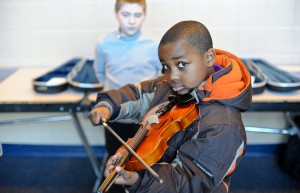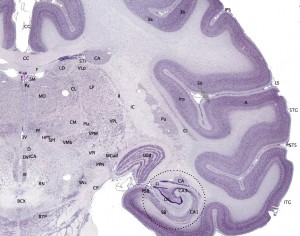Were you ever forced as a child to take piano lessons, even though you hated it? Did you ever grumble and complain when your parents nagged at you to practice, or even childishly hate them when they ordered you to join the school band or choir? Well, whatever it was that you were told to do – be it practicing scales or learning violin – you should thank whoever made sure you did it, because it turns out, they were doing the right thing, whether they knew it or not.
Recent research has shown that music has a positive impact on children’s maturation rates, both emotional and behavioural. In an article from the Journal of the American Academy of Child and Adolescent Psychiatry, music was found to have an immense effect on brain development, in particular, the thickness of the cerebral cortex.
Analysis of brain scans from children and adolescents who underwent an MRI showed that cortical thickness increased at a higher rate in children who had some form of musical training. This increase in thickness within the cortex was found in areas linked to functions such as motor coordination, mental organization, emotional regulation, and attention and memory skills – basically, the executive functions of the brain.
However, this study conducted at the University of Vermont College of Medicine did not show any association between the length of time a child has received musical training, and cortical thickness. What this implies (and what I find is one of the key points of this study) is that even little things, such as singing nursery rhymes with your four-year-old, or teaching third-graders short songs to help them memorize their time-tables, can have major benefits on their mental development. This also means that investing in music lessons for your child or encouraging them to get involved with music at school can have long-lasting impacts on their success in academics and later life.
Not only does learning music affect mentally healthy children, it can also have an impact on children with mental disorders such as ADHD or ADD. Although research is still being done on this case, based on the previous study, music was found to help children decrease their anxiety and learn to focus their attention; it has the potential to work as a cognitive treatment that can be more positive for children than taking pills.
In other words, music matters. It may have seemed like practicing piano did nothing but stop you from playing video games or hanging out with your friends, but it actually did a lot more than that. It enabled you to strengthen your cognitive abilities and attention skills that are essential for achieving success in life. So be thankful if you had the chance to learn music – it is one of the greatest privileges you could have had.
Watch this video for more on how music is good for you:

YouTube video courtesy of: Ted-Ed
Posted by: Krystyna Pangilinan




